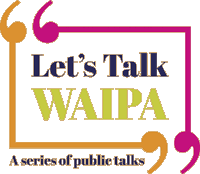
Day 1 - Saturday 12 July 2014
Te Awamutu Council Chambers
10.00am Registration
10.15am Welcome - His Worship the Mayor Jim Mylchreest
10.30am Opening Address - Tom Roa
Moo muri maa mua - A Future in Our Past?
Chair Alan Hall
11.30am Alan Hall
Alexandra 1864-67: The changing fortunes of a military settlement
The story of the establishment of Camp Alexandra on confiscated land astride the Waipa River, in 1864, and its development into the civilian settlement of Alexandra when the Waikato Regiments were disbanded in late 1867.
Chair Lex Chalmers
Alan Hall is a Waikato graduate and an Honorary Fellow of the University where he was Associate Dean of the School of Education prior to retirement in 2002. Since then, as a member of the Pirongia Heritage and Information Centre, he has been investigating the history of Pirongia and, until recently, actively involved in heritage matters as a member of the Waipa Heritage Council.
12.10pm Lex Chalmers
Disappearing heritage; the contribution of dairying to the character of contemporary Waipa
The essay on which this presentation is based begins with a description of the earliest Pakeha attempts to ‘cultivate’ the various environments of Waipa region. The focus on domestic dairy production prior to the advent of refrigeration is recorded in vestigial records, but when co-operative dairy companies began to spring up in Waipa, the records in administrative and public media provide better evidence of patterns of development. More recent ‘productivist agriculture’ is then analysed, along with the important community-related changes associated with dairying. Finally, the presentation assesses how regions like Waipa can consolidate and deliver the heritage detail that informs and excites those interested in understanding their place and prospects.
Chair Alan Hall
Lex Chalmers has lived in Waikato for nearly 60 years. Both sides of his family have been involved in dairying for several generations, but Lex chose a university career, with a particular interest in Geography. He has published in rural studies and in local food production. He has used local newspapers, maps, published texts and information from local and national archives in his project, and is committed to making the information collected available digitally for local scholars.
LUNCH: 1.00 - 2.00pm
2.00pm Jan Pilditch:
John Morgan, Missionary
The diaries and letters are a rich source of information about the setting up of the Mission Station in what is now Te Awamutu and of course its eventual demise during the course of the Waikato Wars. How far was Morgan a man of his time? How far was he a participant in the British Imperialism of the Nineteenth Century? This talk will invite you to consider the implications of Morgan’s Journals and Letters.
Chair Kirstine Moffat
Jan Pilditch retired from the English Programme at the University of Waikato in 2012 and was made a Research Associate and Honorary Fellow of the University. Her research and publications focus on American Literature and the long Nineteenth Century, with a particular interest in the literature of women. She has published a number of books, including Is it the End of the American Century?, Catherine Carswell: A Biography, A Critical Introduction to Katherine Mansfield, and most recently she introduced, edited and annotated The Letters and Journals of John Morgan, Waikato Missionary in two volumes.
2.40pm Kirstine Moffat
Imperial Adventures in Waipa
Do you enjoy narratives of derring-do in which adventures, battles, abductions, daring rescues, and romance feature prominently? Then colonial narratives set in Waipa are for you. Writing for a European readership, authors such as Joshua Kirby, Rolf Bolderwood, Emilia Marryat, Sygurd Wiśniowski, Jules Verne and William Satchell were attracted to the exotic appeal of 'Maoriland', their narratives reflecting imperial attitudes towards Maori and Empire.
Chair Jan Pilditch
Kirstine Moffat is a Senior Lecturer in English at the University of Waikato where her research and publications focus primarily on nineteenth and early twentieth century New Zealand settlement writing. As well as books, music is one of Kirstine’s abiding passions. She started to learn the piano when she was five and is the author of Piano Forte: Stories and Soundscapes from Colonial New Zealand (Otago University Press, 2011).
3.20pm Stephen Harlow
Digital Histories: Moving stories online
If we want our young people to engage with stories of their past, put them where they will find them. YouTube has greater reach among 18-34 year-olds than any cable television channel. This presentation will describe a format that will help you tell the stories that are captured by the photographs and film in your archives to online audiences young and old. (In the time it has taken you to read this paragraph 100 hours of video has been uploaded to YouTube. Does it not make sense to move our stories online?)
Chair Lex Chalmers
Stephen Harlow: American poet Muriel Rukeyser is oft-quoted as saying that ‘The Universe is made of stories, not of atoms.’ As a one-time chemistry teacher this claim came as somewhat of a challenge. I can now see the truth in that line of poetry as I assist would-be digital storytellers to apply the hard digital computer skills to the softer, but no less difficult, art of storytelling. When I'm not helping people tell their stories digitally I develop e-learning at the University of Waikato.
AFTERNOON TEA
Programme

